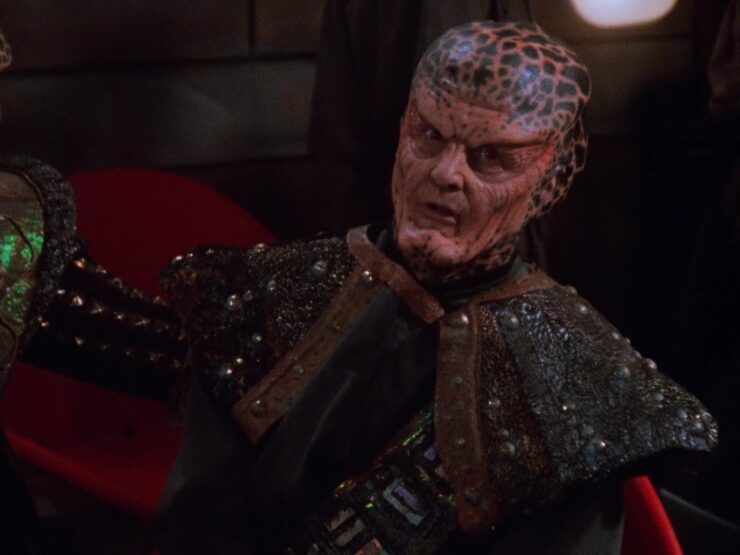Many aspects of modern societies require human specifications within a narrow, predictable range. People possessing unusual cognitive characteristics, who are too vulnerable to UV or not vulnerable enough, whose dimensions and shapes are outside the default range, may be difficult to accommodate… or exploit. What is to be done with non-standard humans? Greek myth offers one solution…
The ancient Greek innkeeper Procrustes struggled to deal with guests who made the lifestyle choice not to fit his beds. Procrustes stretched or shortened guests until they did fit. Imagine the Yelp reviews! Clearly Procrustes is an example to emulate.
SF abounds with stories in which humans are transformed in order to better serve society. Below you’ll find five classic examples.
Fireflood by Vonda N. McIntyre (1979)

The subjects who became diggers began as baseline humans unsuited for the environment in which they were to spend their lives laboring. The solution was to use advanced biotech techniques to convert the diggers into unsightly but durable forms fit for their new workplace. It was a solution that satisfied everyone (who mattered).
By the time the conversions were finished, the project for which the diggers were intended had been deferred indefinitely. Being too ugly to impose on Terrestrial society, the diggers were consigned to a small, unpleasant reservation where nobody else would have to look at them. One brave digger sets out on a quest for justice for her people.
Fireflood is the title novella from McIntyre’s Fireflood and Other Stories, my favorite disco-era McIntyre collection. The collection abounds with stories that could teach management some new ways to maximize the unhappiness of their workforce.
Cage a Man by F.M. Busby (1973)

The alien Demu wish only the best for the lesser races of the galaxy. Possessing as they do displeasing shapes and subpar cultures, the non-Demu will never meet proper standards if left to their own devices. This is why, when the Demu encounter non-Demu, they provide them with surgical and behavioral modifications to bring them up to Demu standards.
Re-homed by the Demu, veteran soldier Barton bitterly resents the Demu efforts to better him, interpreting his experiences as kidnapping, torture, mutilation, and body-horror. Provided the opportunity to express his profound ingratitude, Barton does his best to convey his deep-seated anger.
Older reviews, when the book was published, often compared what the Demu were doing to Communistic brainwashing. However, nations across Earth often engage in protracted efforts to transform persons of low-status cultures into the dominant society’s image. No doubt readers can easily think of examples from their own societies.
The Ship Who Sang by Anne McCaffrey (1969)

Galactic society euthanizes most babies who look like infant Helva. In Helva’s case, her brain was as promising as her body was displeasing. Therefore Helva’s body was discarded and her brain salvaged. Installed in a starship, Helva effectively becomes the starship.
Transforming people like Helva into Ships is expensive. Someone has to pay the cost. Specifically, Ships must provide decades of labor in exchange for the alterations forced upon them. It’s a good thing for the Ships that they live so long. They will need the extra decades to pay off their medical bills.
The novel’s unique blend of ableism and debt peonage is presented as a positive development (albeit with drawbacks like outliving any humans to which Ships become attached). It would seem logical that any civilization able to create Ships probably should be able to offer a wide range of less-dramatic coping mechanisms for the disabled. This particular civilization cannot be bothered.
“Call Me Joe” by Poul Anderson (1957)

Humanity needs resources to be found on Jupiter. But no human body can survive the conditions on Jupiter’s surface. The answer is for humans high in orbit over Jupiter to teleoperate artificial bodies down on Jupiter’s surface. Humans cannot live on Jupiter, but their avatars can.
Rather, their avatars should be able to. Ed Anglesey—angry, embittered, and confined to a wheelchair after an accident—is finding his connection to his Jovian increasingly unreliable. Psionics expert Jan Cornelius must determine what element of the system is failing Ed. Is it the equipment? Or can the issue be found within Ed himself?
Modern readers may wonder why it is that a civilization able to create bodies to order could not offer a man unable to walk any alternatives better than a wheelchair. Well, there wasn’t really room in a short story to explore that question. However, not only is Ed’s treatment in keeping with the mores of Eisenhower-era America, immiserating Ed makes him willing to serve in the Jupiter project, which helps move the story along.
No Woman Born by C. L. Moore (1944)

Beautiful, graceful, possessed of a magnificent voice, Deirdre was adored by audiences across Earth. Tragedy struck when fire consumed Deirdre’s theatre. The world mourned a woman lost so young. In fact, reports of Deirdre’s death were premature.
Deirdre was burned beyond recognition, but she survived. Maltzer, a scientist, provided her with a new body, a machine to replace her lost flesh. But what of the woman inside the metal? Is it possible Deirdre will go mad within her glittering new form?
The men in this story fear that a woman denied conventional beauty will be driven insane by what she has lost. Deirdre has a clearer perspective. Deirdre revels in what she has gained. Pity the poor, puny, clumsy fleshlings around Deirdre.
This isn’t one of those stories where a cyborg goes mad and starts killing people. Deirdre’s new body is a substantial upgrade in all ways over her old one, so why wouldn’t she be happy? But the men are, of course, focused on superficial appearance.
***
These are but a few of the SF tales about people who have been transformed without consent. Have fun filling the comments with all the works I omitted due the constraints of the usual five-book format! Note: the list is incomplete in a different way: it largely overlooks people who willingly embrace transformation in order to better realize their own goals. That is a subject for another day…
In the words of fanfiction author Musty181, four-time Hugo finalist, prolific book reviewer, and perennial Darwin Award nominee James Davis Nicoll “looks like a default mii with glasses.” His work has appeared in Interzone, Publishers Weekly and Romantic Times as well as on his own websites, James Nicoll Reviews (where he is assisted by editor Karen Lofstrom and web person Adrienne L. Travis) and the 2021, 2022, and 2023 Aurora Award finalist Young People Read Old SFF (where he is assisted by web person Adrienne L. Travis). His Patreon can be found here.














